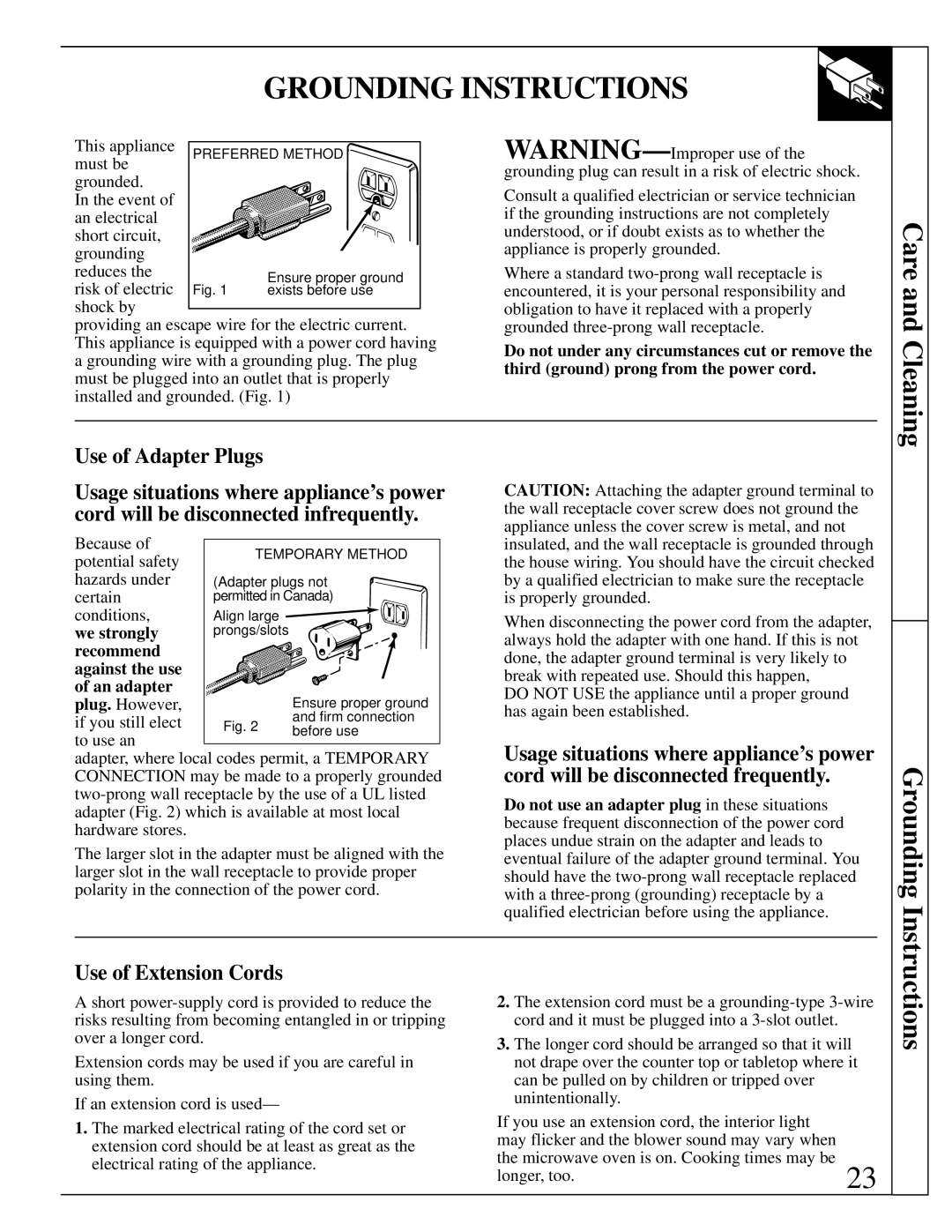
GROUNDING INSTRUCTIONS
This appliance must be
grounded. In the event of an electrical short circuit, grounding
reduces the risk of electric shock by
providing an escape wire for the electric current. This appliance is equipped with a power cord having a grounding wire with a grounding plug. The plug must be plugged into an outlet that is properly installed and grounded. (Fig. 1)
Consult a qualified electrician or service technician if the grounding instructions are not completely understood, or if doubt exists as to whether the appliance is properly grounded.
Where a standard
Do not under any circumstances cut or remove the third (ground) prong from the power cord.
Care and Cleaning
Use of Adapter Plugs
Usage situations where appliance’s power cord will be disconnected infrequently.
Because of potential safety hazards under certain
conditions, we strongly recommend against the use of an adapter plug. However,
if you still elect to use an
adapter, where local codes permit, a TEMPORARY CONNECTION may be made to a properly grounded
The larger slot in the adapter must be aligned with the larger slot in the wall receptacle to provide proper polarity in the connection of the power cord.
CAUTION: Attaching the adapter ground terminal to the wall receptacle cover screw does not ground the appliance unless the cover screw is metal, and not insulated, and the wall receptacle is grounded through the house wiring. You should have the circuit checked by a qualified electrician to make sure the receptacle is properly grounded.
When disconnecting the power cord from the adapter, always hold the adapter with one hand. If this is not done, the adapter ground terminal is very likely to break with repeated use. Should this happen,
DO NOT USE the appliance until a proper ground has again been established.
Usage situations where appliance’s power cord will be disconnected frequently.
Do not use an adapter plug in these situations because frequent disconnection of the power cord places undue strain on the adapter and leads to eventual failure of the adapter ground terminal. You should have the
Grounding
Use of Extension Cords
A short
Extension cords may be used if you are careful in using them.
If an extension cord is used—
1.The marked electrical rating of the cord set or extension cord should be at least as great as the electrical rating of the appliance.
2.The extension cord must be a
3.The longer cord should be arranged so that it will not drape over the counter top or tabletop where it can be pulled on by children or tripped over unintentionally.
If you use an extension cord, the interior light may flicker and the blower sound may vary when the microwave oven is on. Cooking times may be
longer, too. | 23 |
|
Instructions
